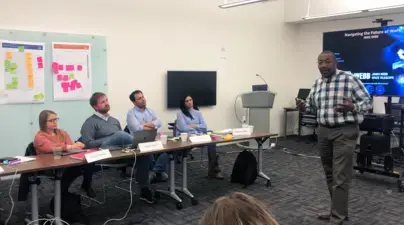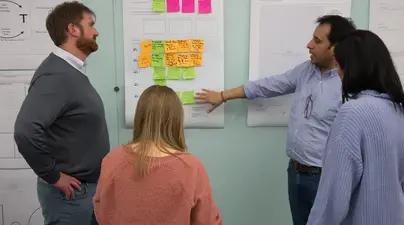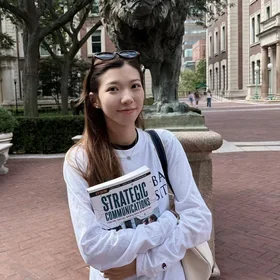Nobel laureate Paul Romer’s quote, “Economic growth springs from better recipes, not just from more cooking,” captured the theme and insights shared during the Spring 2020 block week for the Information and Knowledge Strategy program’s new cohort of students. The program debuted the new in-person elective course, Navigating the Future of Work, to address the mounting data and expert analyses pointing to a massive shift in the nature, scale, and modality of work.
Held in New York, the five-day course convened faculty, advisors, and students who otherwise complete most of the coursework online in the evenings. Guest speakers included Stephane Kasriel, most recent CEO of Upwork; Greg Robinson, Director of NASA’s James Webb Space Telescope; Alicia Aitken, Head of Investment Management & Delivery at ANZ; Michael Fors, Ph.D., Executive Leader in the Leadership, Learning & Organizational Capability (LLOC) Team at Boeing; and Ben Williams, COO of Exyn Technologies and Executive in Residence at the University of Pennsylvania.

Students spent the week grappling with the intangible elements that determine output and ultimately impact profitability on an individual, team, and enterprise scale. “How are the decisions made?” and “What are you using to gauge your own ability to learn?” were among the questions baked into the applied exercises and independent assignments led by faculty members Edward Hoffman, Ph.D. and Jordan Sims. Charged with the reality that the economy has shifted the way leaders must respond to challenges within their organizations, students collaborated on and pitched innovative business solutions to emerging real-world issues, demonstrating the adaptive capabilities required of leaders aiming to stay competitive in the evolving future of work.
Over a live video feed, Stephane Kasriel, former CEO of the freelancing platform Upwork, answered students’ questions and shared his predictions as well as a practical dose of optimism about automation, AI, and other disruptive factors. “It’s important to be optimistic and take the future of work as an opportunity. What I worry about is people looking at the future of work as a negative, assuming there are no jobs in the future, and, therefore, not investing in the new skills they need or that their workers need. The future is not set for us. We get to shape it... That’s where true leadership is born.”

The new cohort consists of students in a range of industries and organizations. For the next 16 months, they will engage in interactive online lessons and discussions, a capstone project, and on-campus intensives crafted to aid in their mastery of collaborative leadership, strategy, entrepreneurship, design, and change management. Reflecting on the importance of IKNS and the in-person collaboration during Navigating the Future of Work, Myrlene Laroche (‘20SPS) said, “[Even for people who work in tech] collaboration is going to be important. [Employees] are going to have to understand their part of the business, but also understand what the rest of the business or organization does. And they are going to have to use that to strategically inform the things that they build because the world is going to need people who understand both sides of that.”


